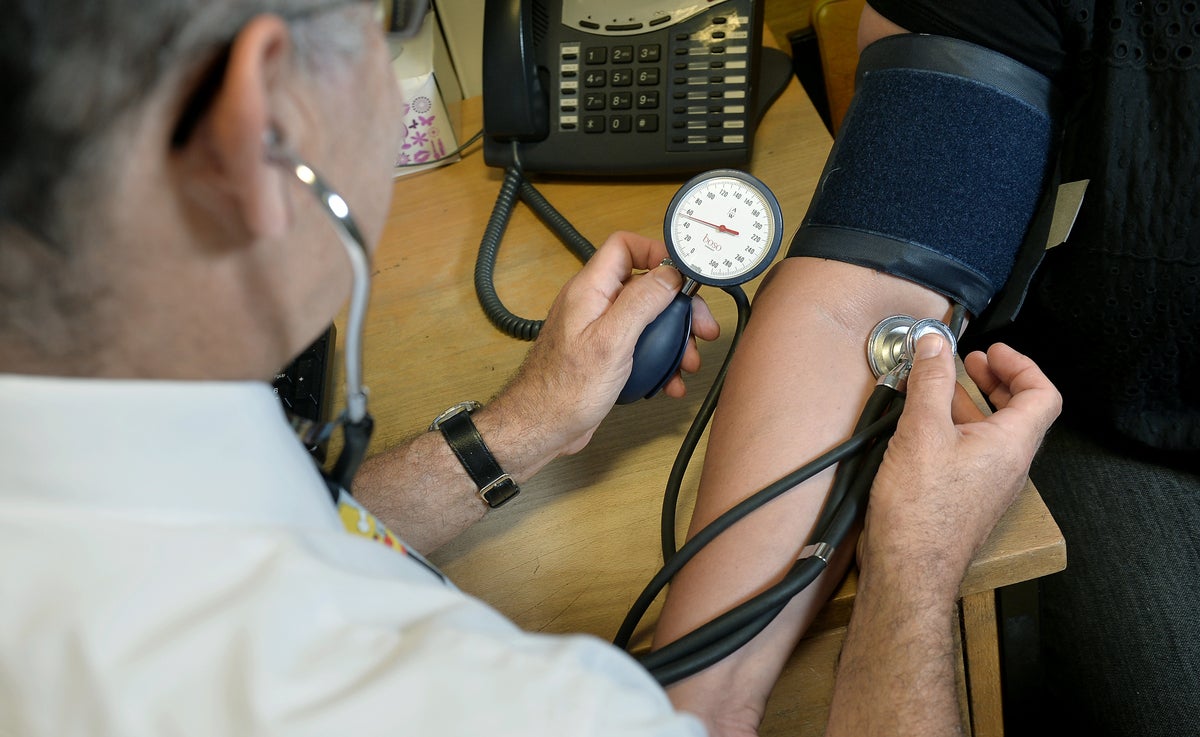
The NHS faces a shortfall of tens of thousands of GPs in the next decade which will have “disaterous” impacts on patient care, new research warns.
The NHS currently has a shortage of 4,200 GPs, according to a new analysis from think tank the Health Foundation.
However, its report, published on Thursday, warns the situation could worsen, with a shortage of more than 10,000 GPs by 2030 - or in a worst case scenario a shortfall of more than 20,000.
The analysis also suggests a future shortage of nurses working in general practice, with the NHS down 17,000 nurses on what is needed to meet demand within surgeries.
In 2019, the Conservative party committeed to recruiting 6,000 more full time GPs in England by 2023-24. But researchers said it was “unlikely” the government would reach this target.
Despite the overall numbers of GPs growing, thanks to the number of locum and trainee doctors, the number of permanent GPs will fall by around 1,00, they said.
According to the Health Foundation, the number of full qualified permanent GPs for every 100,000 patients fell from 47 to 44 between 2017 and 2021.
Even in an optimistic scenario, its experts said the NHS could be short of 3,300 GPs by 2030-31.
The report warns workforce shortages of this scale will pose a “significant” and “serious” risk to the quality of care and patient safety.
Anita Charlesworth, director of research and the Health Foundation’s REAL Centre, said: “England’s GP services are under huge pressure. It’s sobering that over the next decade things are set to get worse, not better, with a growing shortage of GPs and practice nurses.
“While these issues are not unique to England, it is critical that government takes action to protect general practice and avoid it getting locked in a vicious cycle of rising workload driving staff to leave, in turn creating more pressure on remaining staff and fuelling even more departures. It must also be clear with the public that the way they access general practice will need to change.”
“There are steps the government can take to limit the size of the shortfall, but there are no quick fixes. General practice is vital for a high quality and efficient health system, but the pressures it faces are longstanding, significant, and growing. Action is urgently needed to retain existing GPs and practice nurses, and to ensure that sufficient numbers are trained for the future.”
Responding to the report, Royal College of GPs (RCGP) chair, Professor Martin Marshall, said the findings were “familiar reading”. He warned if the government does not act, it would be a “disaster for patient care” and the NHS.
Research by the RCGP suggested almost 19,000 GPs plan to leave the profession in the next five years due to stress, burnout and lack of job satisfaction.
Prof Marshall added: “That the Health Foundation have found such stark findings about practice nurses, as well as GPs, is very concerning.
“GPs and our teams have been working under intense workload and workforce pressures for many years, but the pandemic has exacerbated these pressures.
“More consultations are being made every month in general practice than before the pandemic, and the care being delivered is increasingly complex. Yet, although recruitment efforts mean more GPs are in training than ever before, numbers of fully trained, full-time equivalent GPs are falling.”







